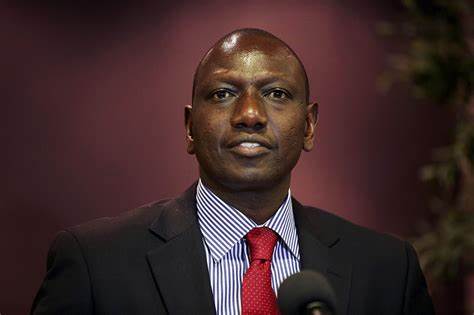
Juma Msafiri
Kenya, since gaining independence in 1963, has undergone significant transformations in its diplomatic approach under different leaderships. Each regime, from Jomo Kenyatta to William Ruto, has uniquely shaped the country’s foreign policy, reflecting changing national priorities, regional dynamics, and global trends.
Jomo Kenyatta Era (1963-1978)
Jomo Kenyatta, as the founding father of independent Kenya, set the foundational tone for the country’s foreign policy. His leadership era was marked by a strong commitment to Pan-Africanism and regional stability. Kenyatta was a vocal opponent of colonialism and apartheid, aligning Kenya with other African nations in a collective struggle for sovereignty and dignity.
His tenure was characterized by a balancing act during the Cold War era, where he advocated for non-alignment, ensuring that Kenya did not become entangled in the superpower rivalry. This stance allowed Kenya to establish diplomatic relationships on both sides of the Iron Curtain, garnering support for its developmental agenda.
Kenyatta’s regime was also notable for its active role in mediating regional conflicts. He played a pivotal role in efforts to resolve disputes in Southern Sudan and Uganda, establishing Kenya as a mediator in East African affairs. This period laid the groundwork for Kenya’s reputation as a champion of African issues on the international stage.
Daniel Moi Era (1978-2002)
Daniel Moi’s tenure marked a subtle shift in Kenya’s diplomatic approach. While continuing the Pan-Africanist ideals of his predecessor, Moi navigated a changing global landscape marked by the end of the Cold War. His foreign policy was characterized by a pragmatic approach, fostering stronger ties with Western nations, especially the United States.
During Moi’s regime, Kenya’s foreign policy appeared more inward-looking, with a greater emphasis on internal stability. This focus sometimes overshadowed its active role in regional diplomacy. However, Moi’s government played a significant role in addressing the Somali conflict, showcasing Kenya’s continued commitment to regional peace and stability.
Under Moi, Kenya also experienced challenges such as increased internal political dissent and economic hardships, which somewhat constrained its international influence. Nonetheless, Moi’s era maintained Kenya’s position as a key player in regional affairs, albeit with a more pragmatic and less ideologically driven foreign policy.
Mwai Kibaki Era (2002-2013)
Mwai Kibaki’s presidency marked a return to a more active regional engagement. Kibaki’s foreign policy was centered on East African integration, seeing it as crucial for regional stability and economic prosperity. His administration was instrumental in the revival of the East African Community (EAC), a significant step in regional cooperation.
Kibaki’s era was also notable for Kenya’s active role in mediating conflicts in neighboring countries. Kenya’s involvement in the peace processes in Burundi and South Sudan under Kibaki’s leadership reinforced its position as a key facilitator in regional peace initiatives. This period also saw Kenya engaging more with international institutions, reflecting a more multilateral approach to diplomacy.
Under Kibaki, Kenya also witnessed significant economic growth, which translated into greater diplomatic leverage. The country became an attractive destination for foreign investment and a voice for African interests in global forums.
Uhuru Kenyatta Era (2013-2022)
Uhuru Kenyatta, son of Jomo Kenyatta, built upon the regional focus established by his predecessors. His tenure was marked by a deepening of East African integration and a push for infrastructure development across the continent, seeing it as vital for Africa’s economic transformation.
Uhuru Kenyatta’s regime actively engaged in mediating South Sudan’s civil war and hosting peace talks for the Democratic Republic of Congo. However, his administration faced criticism over increased Chinese influence in Kenya, raising concerns about the implications for Kenya’s sovereignty and economic sustainability.
Another challenge during this period was concerns about democratic backsliding within Kenya, which had implications for its international reputation. Despite these challenges, Uhuru Kenyatta’s tenure maintained Kenya’s active role in regional affairs, particularly in peacekeeping and infrastructure development.
William Ruto Era (2022-Present)
William Ruto’s approach to foreign policy, while still in its early stages, has shown an emphasis on economic diplomacy. His administration has been keen on expanding trade and investment partnerships, seeing economic development as central to Kenya’s international stature and regional influence.
Ruto has also expressed a commitment to continuing Kenya’s role in regional peace and integration efforts. However, his focus on domestic priorities and economic development suggests a potential recalibration of Kenya’s diplomatic weight, balancing internal developmental goals with external engagements.
The Ruto era presents an opportunity to observe how Kenya will navigate the complexities of a rapidly changing global environment, particularly in balancing economic interests with traditional diplomatic roles.
Kenya’s diplomatic evolution reflects a journey of balancing national, regional, and global interests under different leaderships. From the Pan-Africanist foundations laid by Jomo Kenyatta to the economic diplomacy emphasized by William Ruto, each regime has contributed to shaping Kenya’s role on the international stage. As global dynamics continue to evolve, Kenya’s diplomatic strategy remains a key factor in its pursuit of national development and regional stability.

